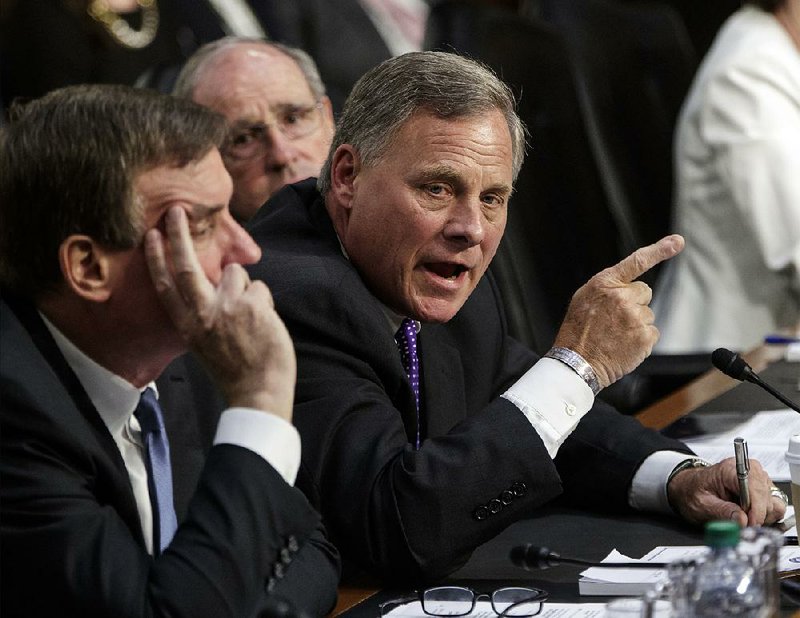WASHINGTON -- Officials say they need $6 million in federal money to prevent pockets of land around Redwood National Park from being used for private interests.
The Everglades National Park needs $2.5 million for the same purpose.
And on a more local level, communities need federal money to help create baseball fields and smaller parks.
There's a fund for all that, and vulnerable House Republicans are feeling pressure to make sure that money keeps coming in -- permanently.
Started in 1965, the fund that uses money from offshore oil drilling to protect and create national and local parks has to be renewed by the end of September, or the money will no longer be available.
The fund protects national parks by buying up pockets of private land in and around the parks, which could otherwise be used for private development, as well as matching state and local funds to create local parks.
The plan to make funding permanent now has 227 House co-sponsors, including members of both political parties. That's nine more than a House majority.
The blueprint was approved by the Senate in 2016, but has not been put to a vote in the House. A Senate version of the bill was introduced by Sen. Richard Burr, R-N.C., last year and has 12 co-sponsors.
To help push the cause, the League of Conservation Voters, which promotes environmental protection, plans to spend $1 million for digital and online ad campaigns targeting Republicans who have not yet signed on to the bill. The first round of targets are Reps. Mimi Walters, R-Calif.; Steve Knight, R-Calif.; Vern Buchanan, R-Fla.; and Keith Rothfus, R-Pa. All are regarded as vulnerable this fall.
"These are people who are out of step with the rest of their district on the environment," said Alex Taurel, the League's deputy legislative director.
The group plans to add more names to the list before September.
Chris Jusuf, Knight's spokesman, said his boss became a co-sponsor on the permanent funding bill last week. Knight voted against a non-binding resolution to make the fund permanent in 2016.
AshLee Strong, speaking for House Speaker Paul Ryan, R-Wis., said Ryan favors the plan but did not comment about making the formula permanent.
"As an avid hunter and angler, Speaker Ryan believes the [fund should continue] to ensure current and future public lands are in fact accessible to the public," Strong said. "We have confidence that the diverse interests share that goal and will work cooperatively toward a solution."
Sally Dionne, speaking for Buchanan, said Buchanan would vote to make the fund permanent if it got a vote on the floor, but she did not respond to questions about why he has not co-sponsored the legislation.
She called the League of Conservation Voters a "highly partisan Democrat organization" and said the attack was "misleading."
"Vern has a proven record in support of environmental priorities important to his district, such as combating red tide, opposing offshore drilling and protecting endangered wildlife," Dionne said.
Neither Walters nor Rothfus returned requests for comment.
The fund was last approved in 2015 for three years after a fight by a group of conservatives that wanted to overhaul the program. The group argued at the time that the fund should have less to do with the government acquiring more land and do more to protect lands already in its possession.
There are many other parks awaiting millions of dollars in funding, including the Mojave Trails National Monument and the Mailliard Working Forest in California and Wakulla Caves in Florida.
The current bill allows for maximum funding of $900 million per year, but the latest budget bill funded the parks protection program at less than half of that: $425 million for the year.
Sen. Dianne Feinstein, D-Calif., who serves on the appropriations subcommittee that deals with the fund, said Tuesday that she supports funding closer to $900 million but that she wasn't included in recent budget discussions on the issue. It has historically been funded at well below $900 million.
A Section on 06/10/2018

